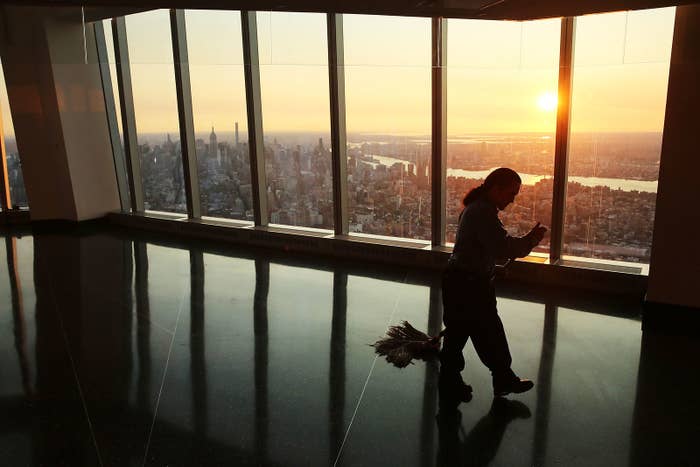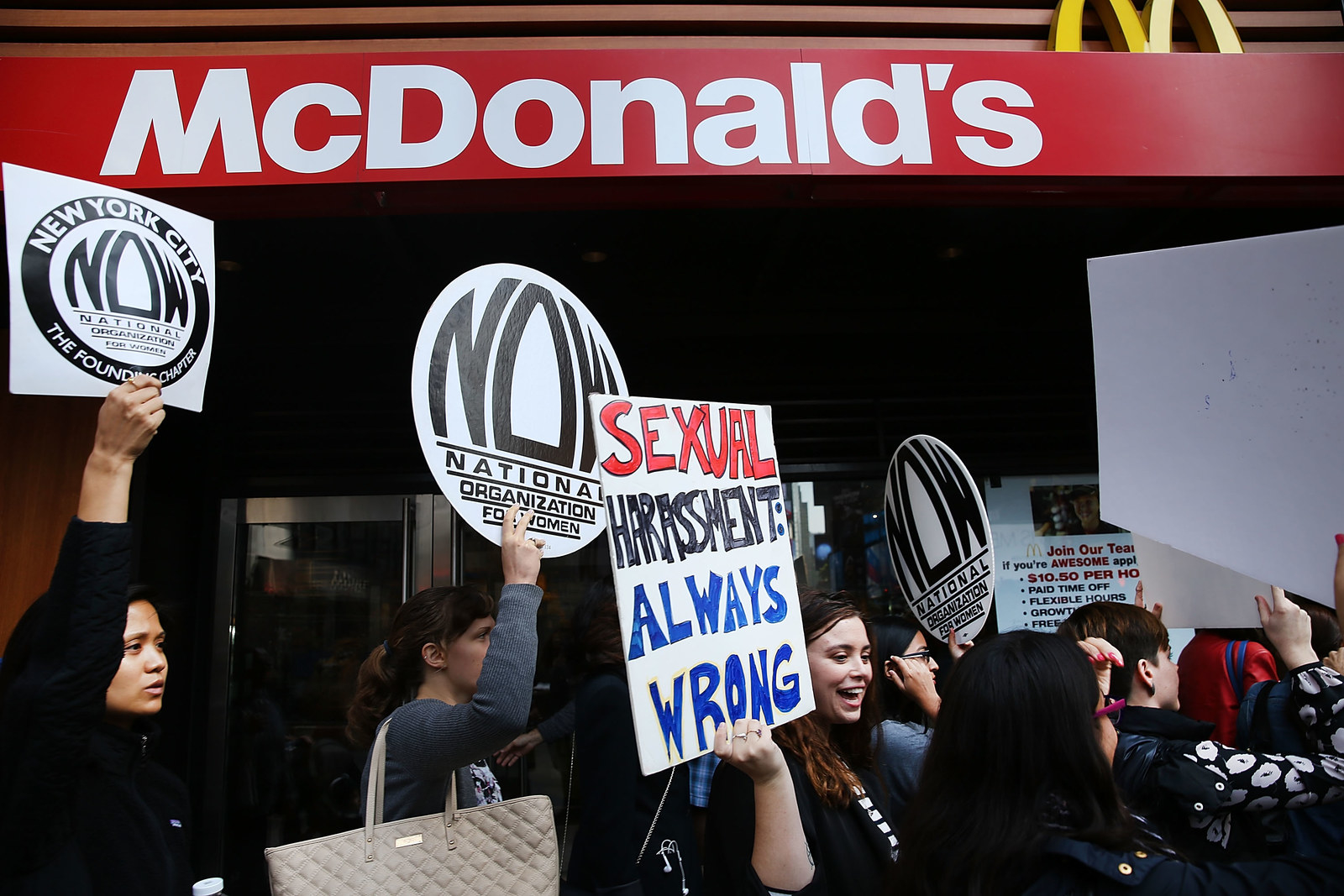
The Supreme Court on Monday made it harder for some employees to file sexual harassment complaints as a group — a blow to potential cases that may come about following the #MeToo movement.
The court ruled 5–4 — and along ideological lines — that employers may use arbitration clauses in contracts to ban workers from joining together to participate in class-action lawsuits.
“If a woman is being sexually harassed in the workplace and she has an arbitration clause, she’s screwed,” said Cathy Ruckelshaus, general counsel at the National Employment Law Project, following the decision.
The ruling — written by Justice Neil Gorsuch, who was nominated to the bench by President Trump in 2017 — immediately affects an estimated 25 million contracts, according to the Economic Policy Institute. Labor lawyers say it will embolden employers to add such provisions to contracts going forward, knowing the courts will support them.
The decision will “help keep sexual harassment and discrimination practices hidden,” NELP’s Ruckelshaus said, by forcing workers to come forward with their claims individually in private mediation, rather than collectively and publicly.
All three female justices dissented, with Justice Ruth Bader Ginsburg writing that most of the opinion was “egregiously wrong.”

“The question presented,” Ginsburg wrote, concerns whether employers may insist their employees “go it alone” when seeking redress for common grievances — “never mind the right to secured to employees by the National Labor Relations Act.”
“The answer,” she wrote, “should be a resounding, ‘No.’”
The ruling also affects workers’ rights to come forward together with charges of wage inequality, wage theft, and racial and sexual discrimination in the workplace.
In the decision, Justice Gorsuch cited the court’s past rulings in favor of arbitration and wrote, “the virtues Congress originally saw in arbitration, its speed and simplicity and inexpensiveness, would be shorn away” if workers were still permitted to join together and press claims collectively.
Ginsburg read from her dissent from the bench — a step justices take rarely — to voice strong opposition to the majority's decision.
As she has done in the past, Ginsburg urged Congress to act in the wake of a court decision with which the minority disagrees, saying Monday that lawmakers need "to correct the court's elevation of the Arbitration Act over workers' right to act in concert."

Craig Becker, general counsel for the AFL-CIO labor federation, said the decision will have a “tremendous chilling effect on workers, by requiring them to step forward individually to make a claim against an employer.”
Mary Kay Henry, president of the Service Employees International Union, said in a statement that “working people in our country will tell you that it’s intimidating to stand up to their employers and fight for their rights, especially when they have to stand alone.”
Individuals represented by unions are among those workers who do not waive the collective rights in question. In 2017, 10.7% of US employees belonged to unions.
Lawyers for the workers had argued that federal labor law protects not just employees seeking to form unions, but also those not in unions who wish to challenge alleged wrongdoing in specific instances as a collective effort.
The cases the court dealt with Monday, in Epic Systems Corp. v. Lewis, involved charges of wage theft. The employees’ contracts required that they go to arbitration and file their claims individually. The court ruled this was legal.

In 1992, 2% of nonunionized employers used arbitration clauses in contracts, according to Justice Ginsburg. Today, more than half of them do.
It is often not financially worthwhile and even potentially dangerous for individuals to press claims on their own, Justice Ginsburg wrote.
In a landmark 1988 case in Minnesota, 15 women brought a class-action sexual harassment suit against the Eveleth Taconite mine, over a hostile work environment including abusive language, threats, and stalking. The employees settled for $3.5 million.
In a Supreme Court case decided in 2011, 1.6 million women who worked for Walmart sued the company, alleging gender discrimination in pay and promotion practices.
Under Monday’s ruling, should contracts at such companies include mandatory arbitration clauses, such cases wouldn’t be possible.
The decision, Ginsburg wrote, will have profound consequences for workplace inequality and abuse, tilting the legal landscape in favor of exploitative employers.
“The Court forgets the labor market imbalance that gave rise to the [National Labor Relations Act],” Ginsburg warned in her dissent, “and ignores the destructive consequences of diminishing the right of employees ‘to band together in confronting an employer.’”
“The #MeToo movement has emphasized how crucial it is for workers to be able to voice concerns together,” said NELP’s Ruckelshaus. “The decision shows a disdain for workers and their realities in today’s workplace.”

